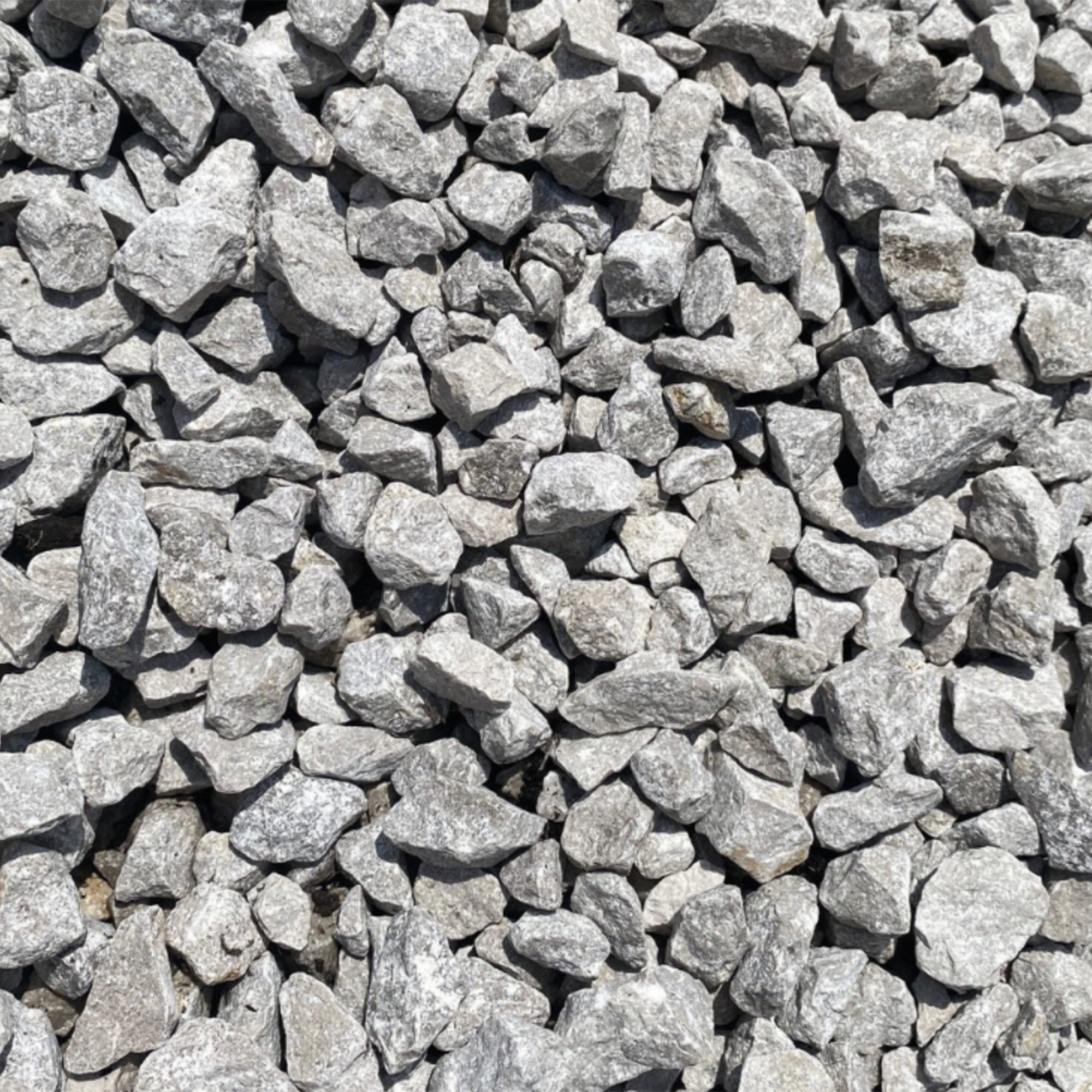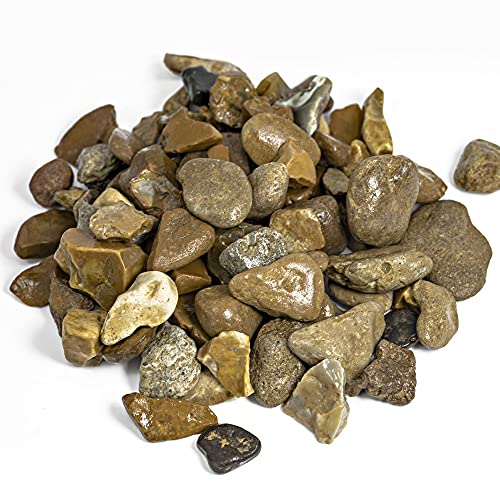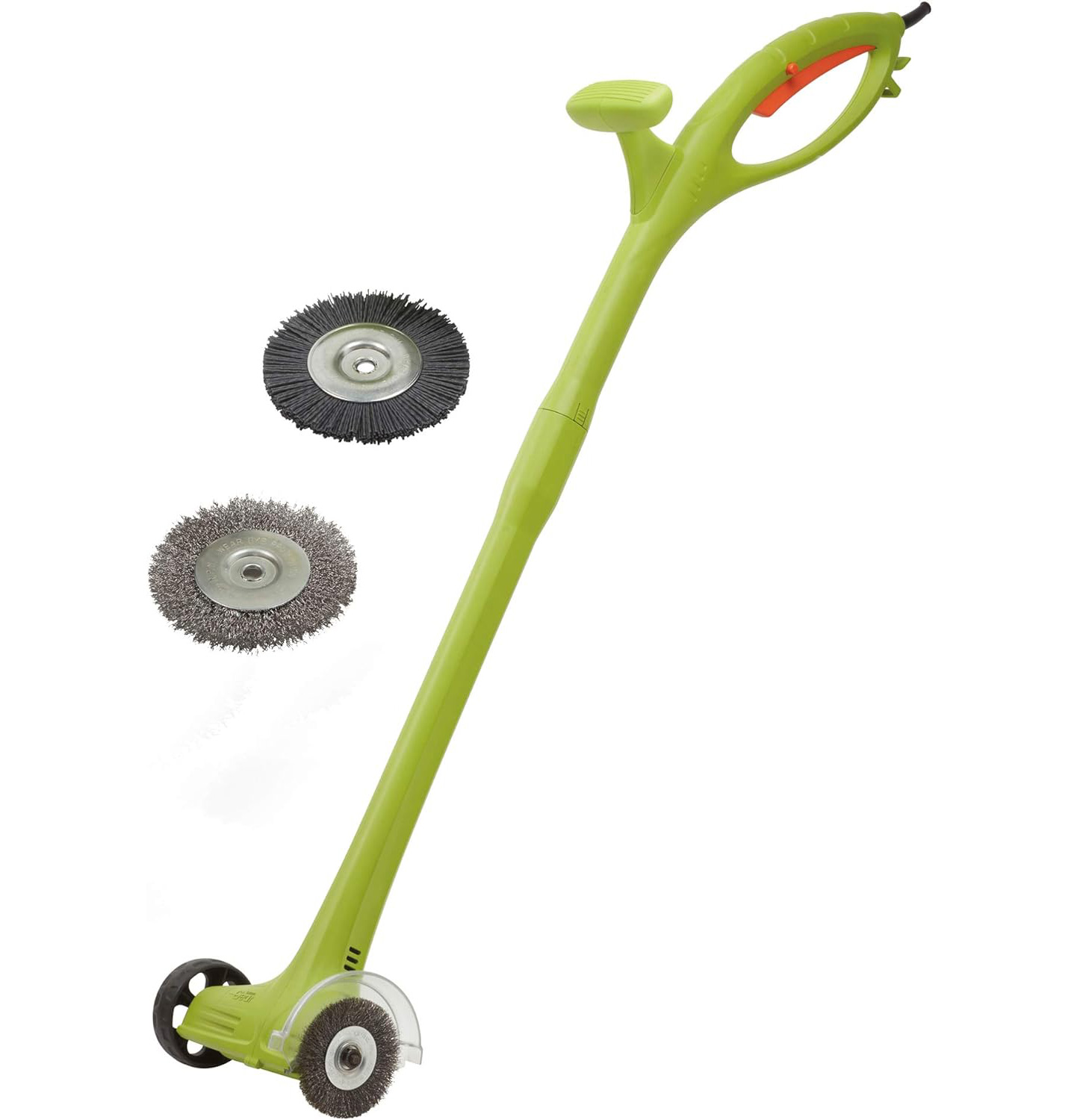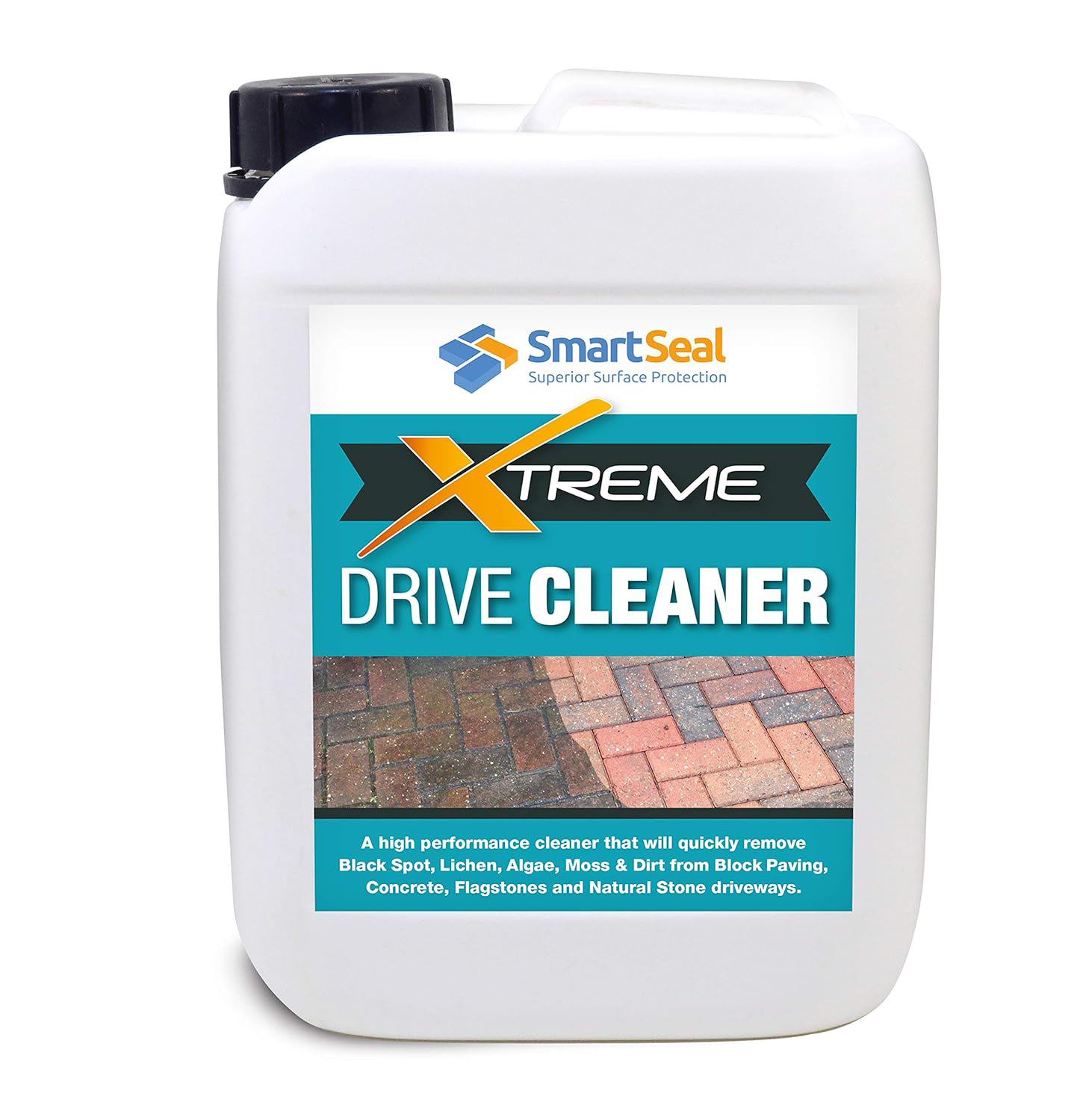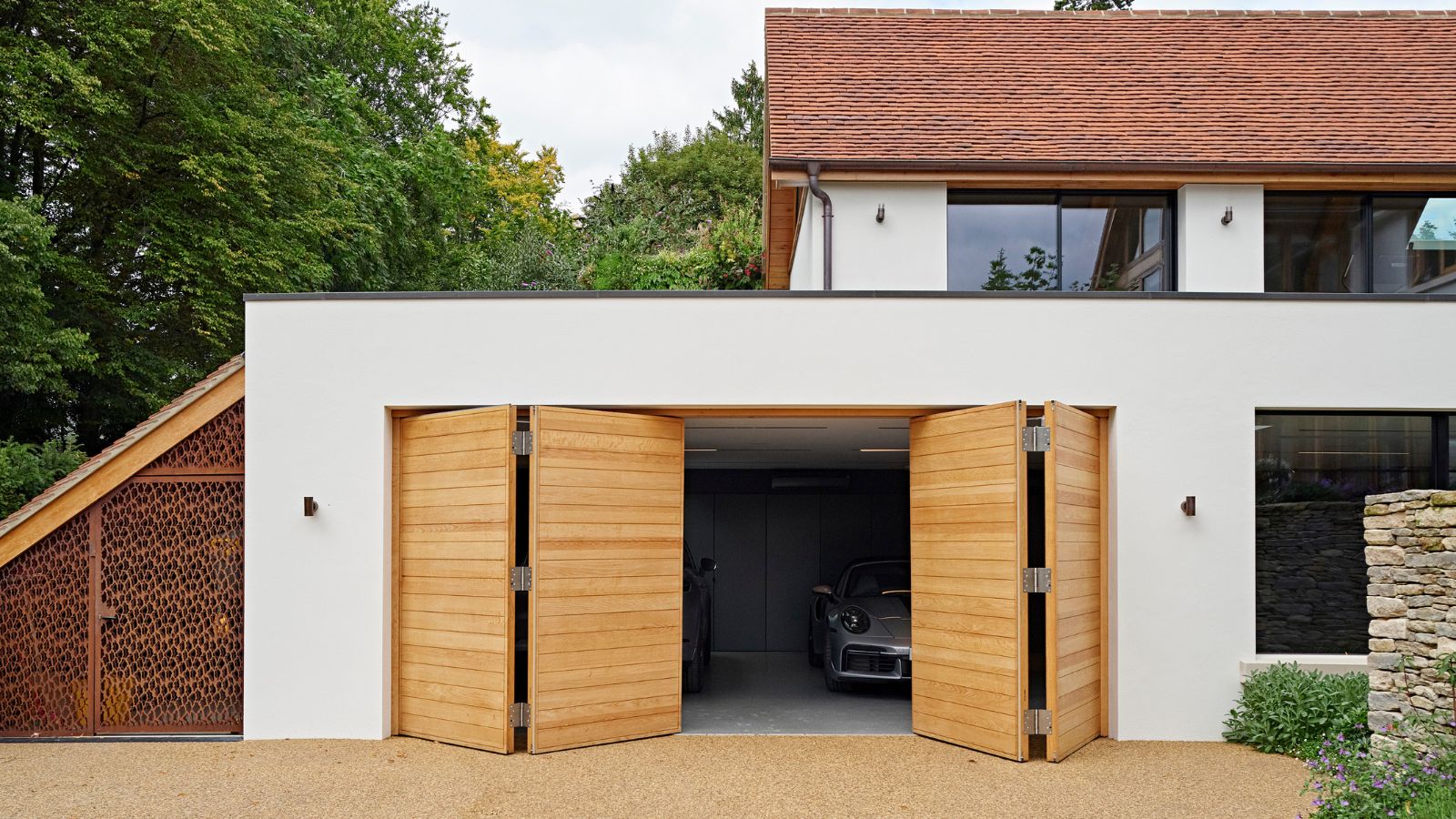5 cheap driveway ideas that won't mean sacrificing kerb appeal
If you are looking for cheap driveway ideas that will still do justice to the frontage of your home, as well as performing well and standing the test of time, our collection has you covered
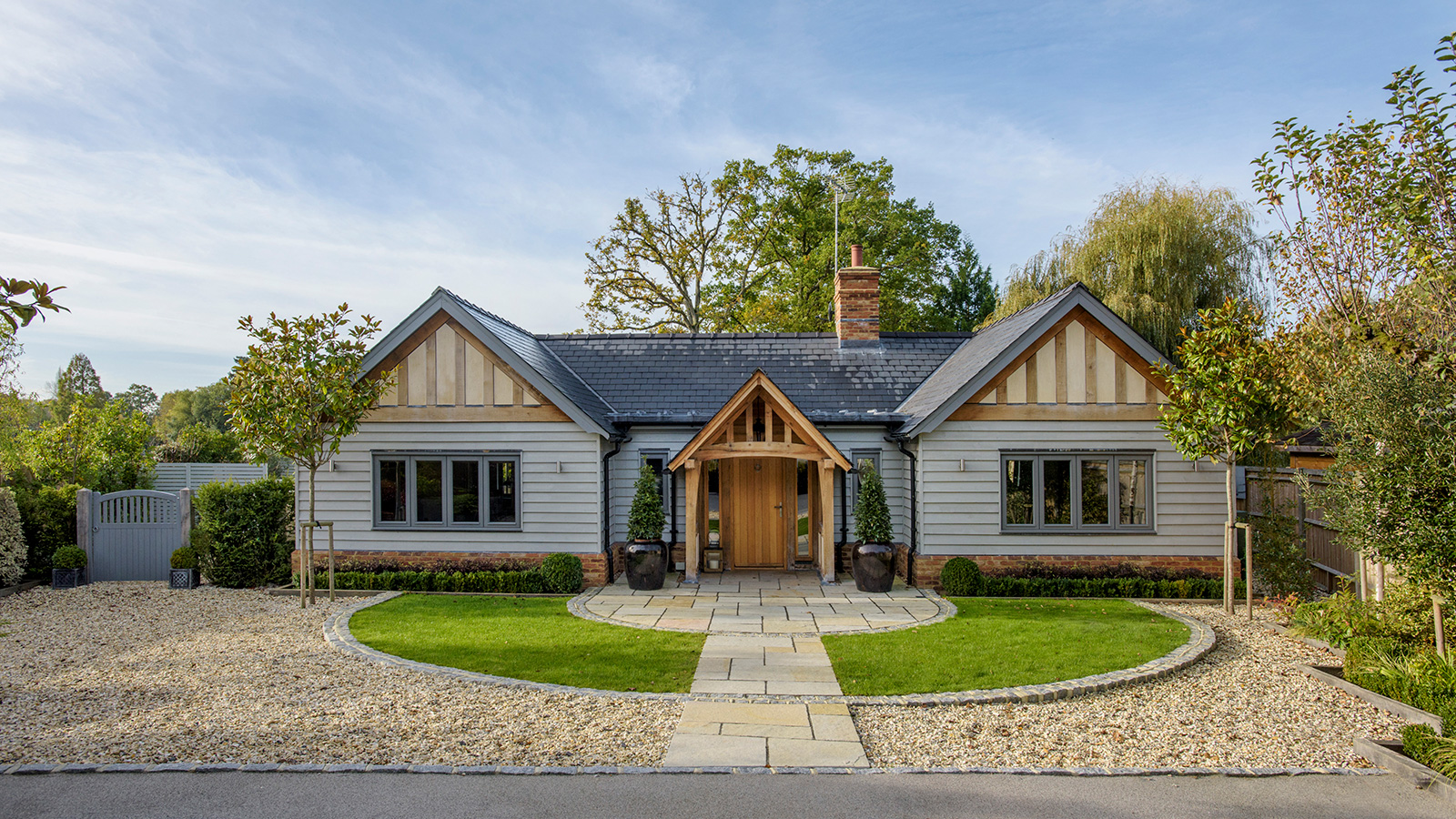
Opting for cheap driveway ideas in order to keep your landscaping costs down need not mean losing out in the style stakes – in fact there are loads of beautiful options out there that won't cost you a fortune.
The driveway ideas you choose are important for many reasons. Not only will they form a large part of the kerb appeal of your house, but they will also perform an important practical role by providing somewhere for your to keep vehicles off the road, as well as often forming a pedestrian approach to your front door.
While we would never suggest leaving your landscaping, and in particular your driveway, as an afterthought, it seems that many renovators and self builders do end up running low on funds when it comes to the garden and areas of hard landscaping. If this sounds like you then don't worry, these cheap driveway ideas are both stylish and affordable.
Cheap driveway ideas to add kerb appeal
The materials you choose for your driveway, along with its shape and overall design, will play a key role in the driveway costs you can expect to face.
Not only that, but they will also have a role to play when it comes to the kerb appeal of your home.
In order to ensure your home looks as attractive as possible from the front, bear in mind the following when it comes to designing an approach:
- Aim for a design that means cars won't have to pull up or be parked directly in front of any windows or your front door
- Consider how the colour of your driveway materials will work alongside the cladding materials of your home
- Use permeable materials that won't allow water to pool
- Make sure you have somewhere to store bins and any other items that you will need to keep on your driveway
1. Gravel makes a cheap DIY driveway option
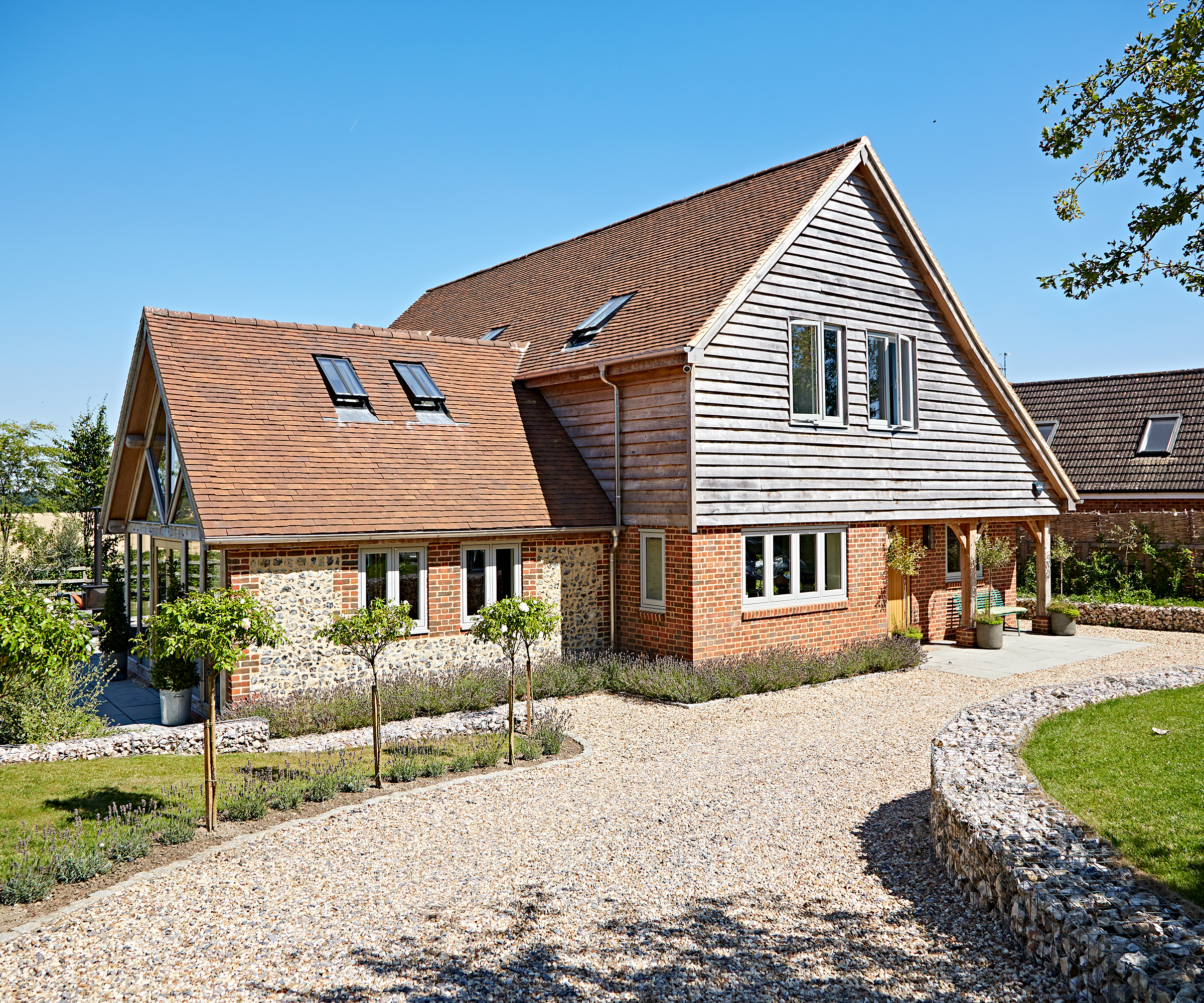
It really is worth exploring gravel driveway ideas if you are looking to keep costs low. Prices from as little as £40m2 are common in terms of the materials themselves, although obviously how thickly you lay the gravel and the specific type you choose will affect this. A depth of at least 50mm is advised.
"Gravel is the cheapest material for a driveway – it can be as low as £40 per square metre," advises Tom Clifford, director of Gardenstone Limited. "In addition, for those who are moderately confident with DIY, you can easily install a gravel driveway yourself, saving money on labour costs – plus it is highly versatile. There are a wide range of different colours and styles of gravel to choose from.
"If you wish to create a more sophisticated and regimented look then you can use a brick stone border around the edge of the driveway," continues Tom. "Before laying gravel remember to prepare your driveway by removing weeds and placing down a weed control membrane, this will reduce the need for regular maintenance in the long run”.
Another large part of the appeal of a gravel driveway is that it can often be laid on a DIY basis and with labour costing from around £350 per day, according to MyJobQuote, there are some significant savings to made by taking this route.
Shop gravel for driveways
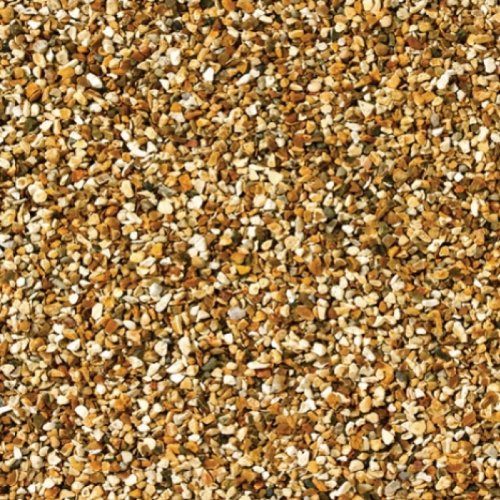
This is classic garden gravel which will be ideal for driveways as well as paths and patios. 20mm is the recommended size for driveways as 10mm stones tend to get stuck in car tyres. This bag is comprised of partly rounded stones in yellows, cream and brown colours.

Tom Clifford is the director of Gardenstone Limited, a leading garden landscaping supplier that specialises in garden edging, patio paving, gravel and walling materials. Tom has been in the garden landscaping business for over 13 years making him an expert in garden design and maintenance. He enjoys sharing his knowledge with readers to help them create the most sustainable and visually appealing gardens as possible.
2. Find ways to brighten up a tarmac driveway
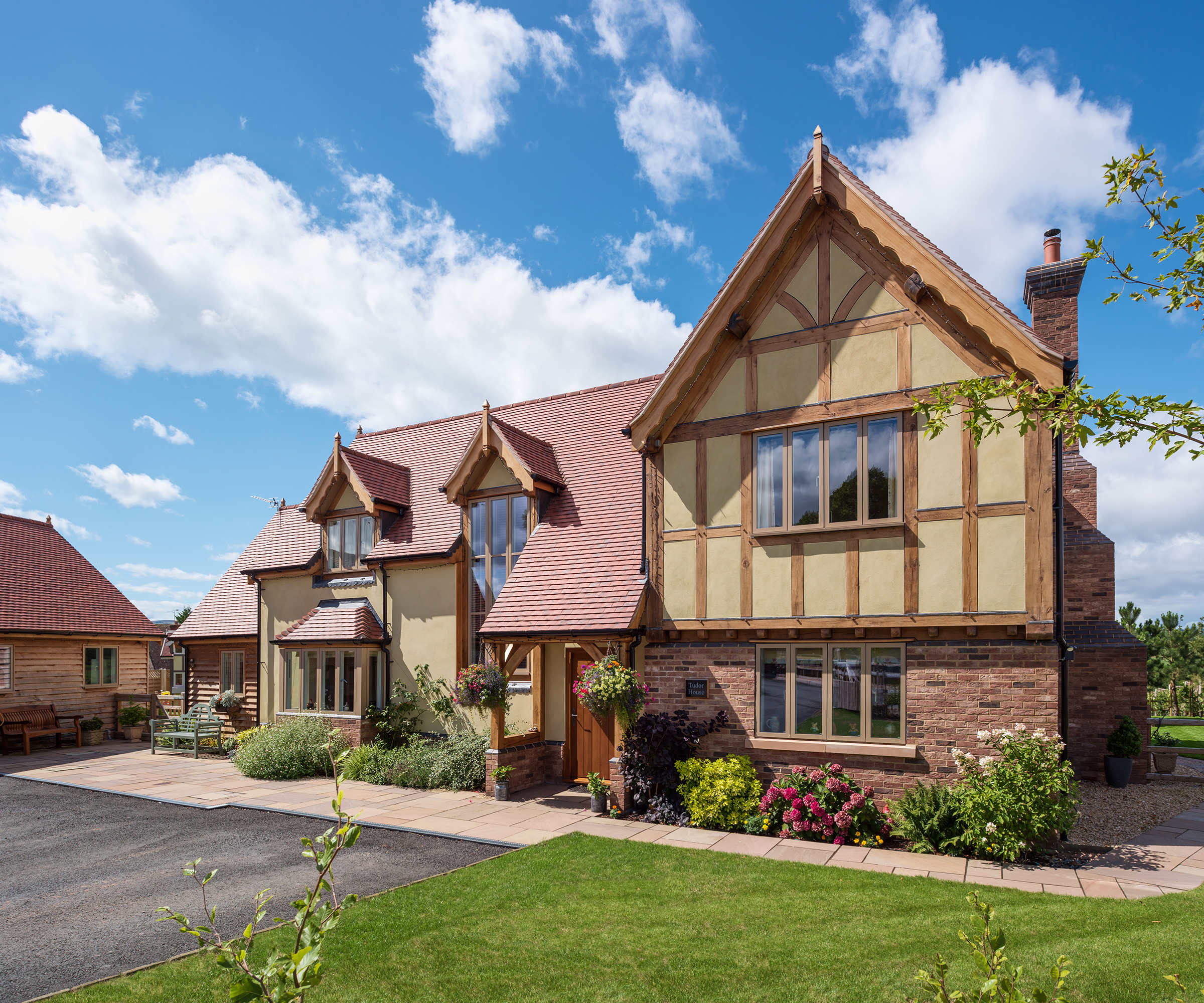
While tarmac might not always be the first material to spring to mind when thinking about the best driveway material for creating a beautiful driveway, there are ways to soften the look of this material.
Avoid using it over large areas and intersperse it with more attractive materials, such as decorative gravel, paving and even areas of grass. Flowerbeds and a wide selection of pots can also help.
You should budget between £50-£70/m2 for a tarmac driveway, according to experienced senior quantity surveyor and estimator Tim Phillps.
3. Don't discount concrete before doing your research
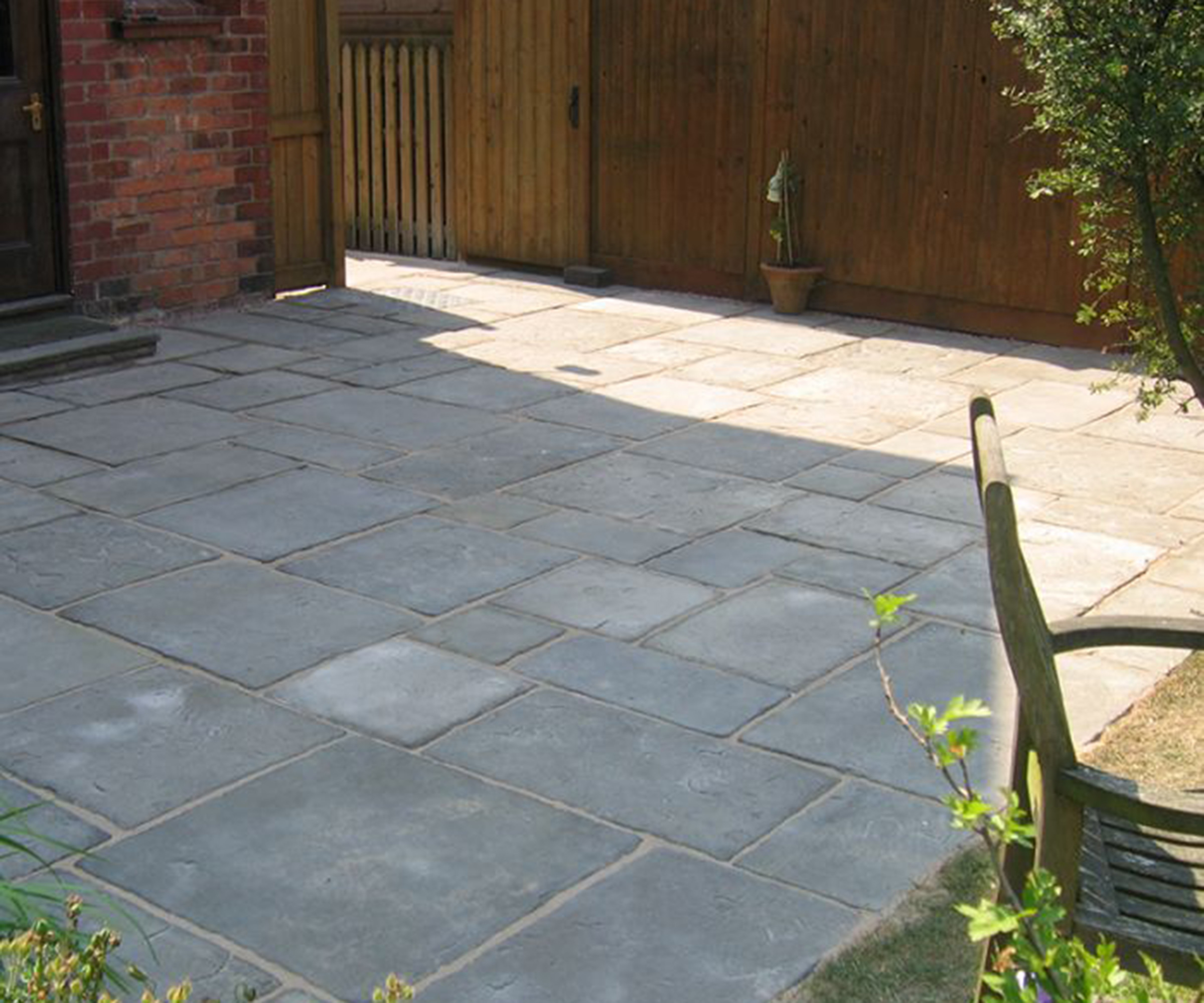
While you might not have considered concrete as a material to base your front garden driveway ideas on, it does come with benefits – one of which is its cost effectiveness.
"Concrete is a highly durable material that is perfect for bearing heavy loads making it one of the most long-lasting choices for a driveway," says Tom Clifford. "Concrete paving is a good investment as, although not initially the most affordable material, its durability and low maintenance ensure that it will last for many years without the need for repair or replacement, reducing costs in the long run”.
The cheapest option is unreinforced concrete which is simply poured and left to set (or cure). MyJobQuote estimate that for a driveway measuring 2.5m x 2.5m, you can expect to pay between £530 to £730, although they say that the average cost of a concrete driveway is £3,500.
Imprinted concrete looks better and can mimic paving and block paving, but is more costly.
4. Choose concrete block paving over clay
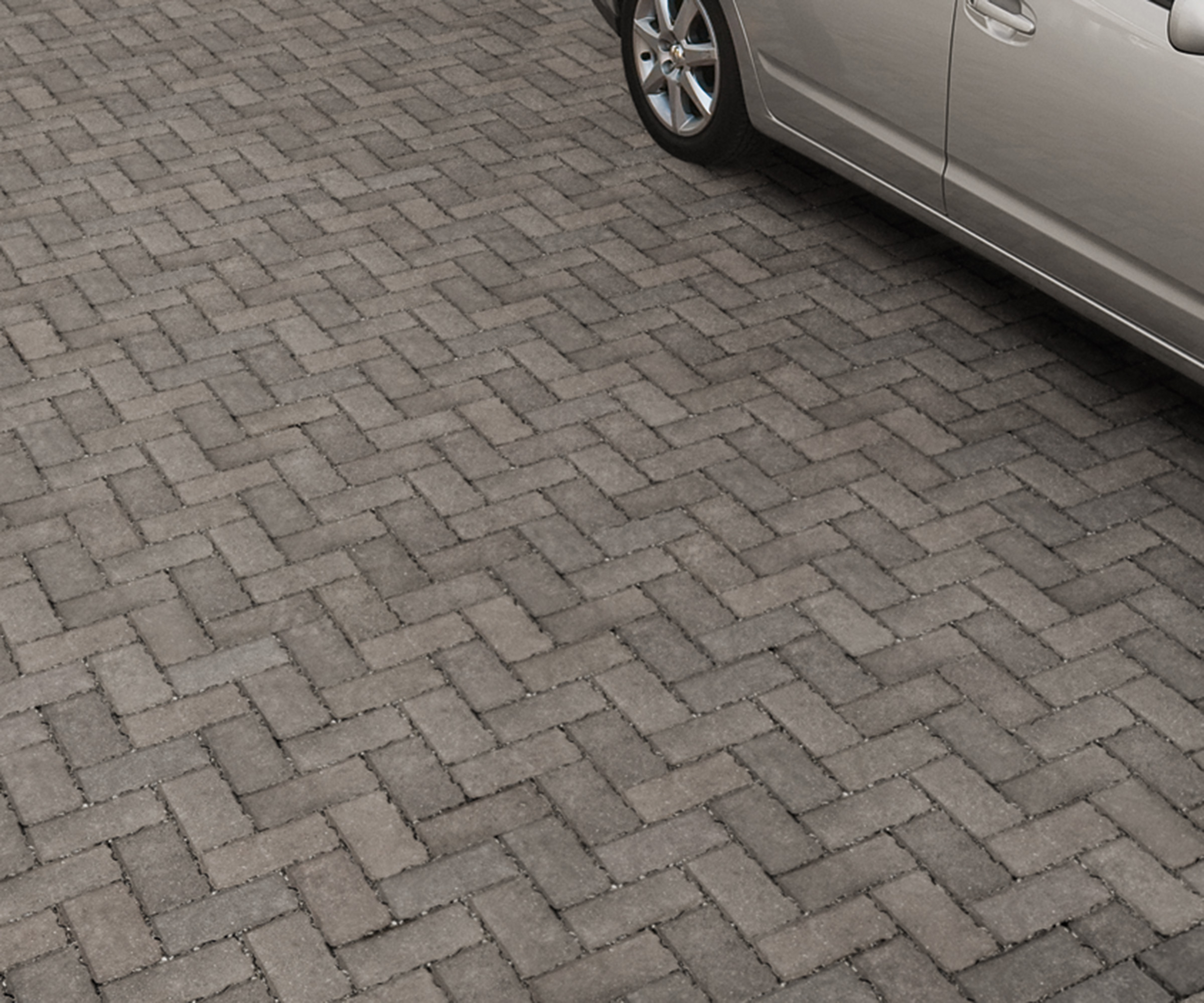
It isn't hard to see why block paving is such a popular choice for driveways – it can look beautiful, is highly durable and comes in a massive range of colours, designs and textures. If you familiarise yourself with how to lay block paving, you might also be able to save on labour costs.
While clay block paving is pretty pricey at around £85/m2 for materials alone, a far cheaper option is concrete blocks, which can be found from approx £25/m2.
"Of all the options available, block paving is a great choice for homeowners," says Alice Turner, product specialist at Marshalls. "The variety of colours, sizes and ranges allows for all aesthetics and purposes to be met when paving your driveway.
"Block paving is hard-wearing and long-lasting, particularly block paving made from concrete. But one of the great upsides to choosing block paving, is that if you need to replace or temporarily uplift a few blocks – for whatever reason – it is much easier with block paving than with driveways that are stuck in place.
"When it comes to affordability, block paving also comes in a variety of materials and therefore, price points," continues Alice. "But rest assured, even those that are more affordable don’t lack in overall quality."
Keep on top of driveway maintenance with these tools
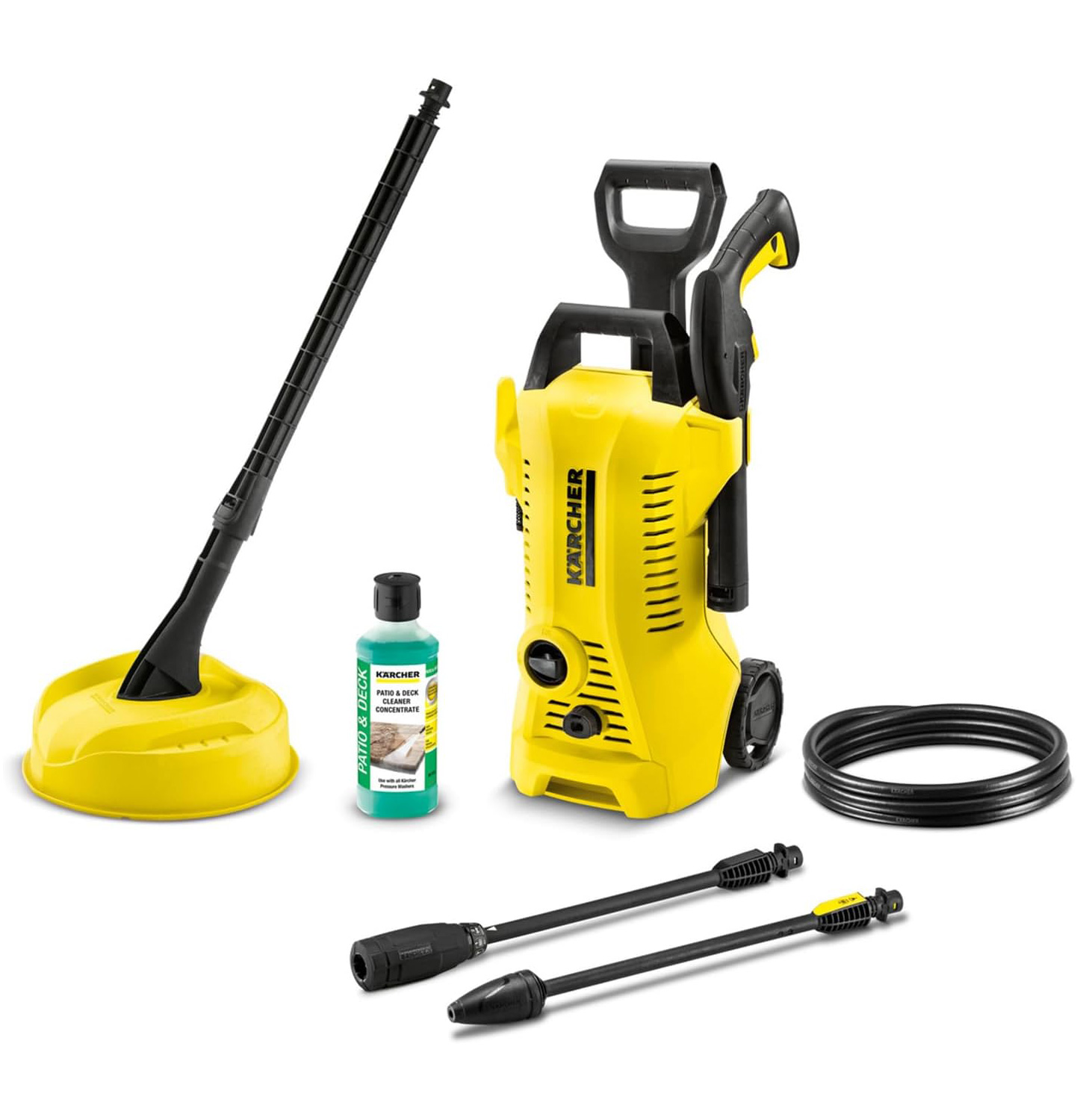
Perfect for your driveway as well as your patio, this pressure washer comes with a high-pressure gun, Vario Power spray lance and dirt blaster.

Alice Turner is product specialist at Marshalls and has been with the company for over 10 years. Marshalls is the UK’s leading hard landscaping, building and roofing products supplier;
5. Think longterm and consider a resin driveway
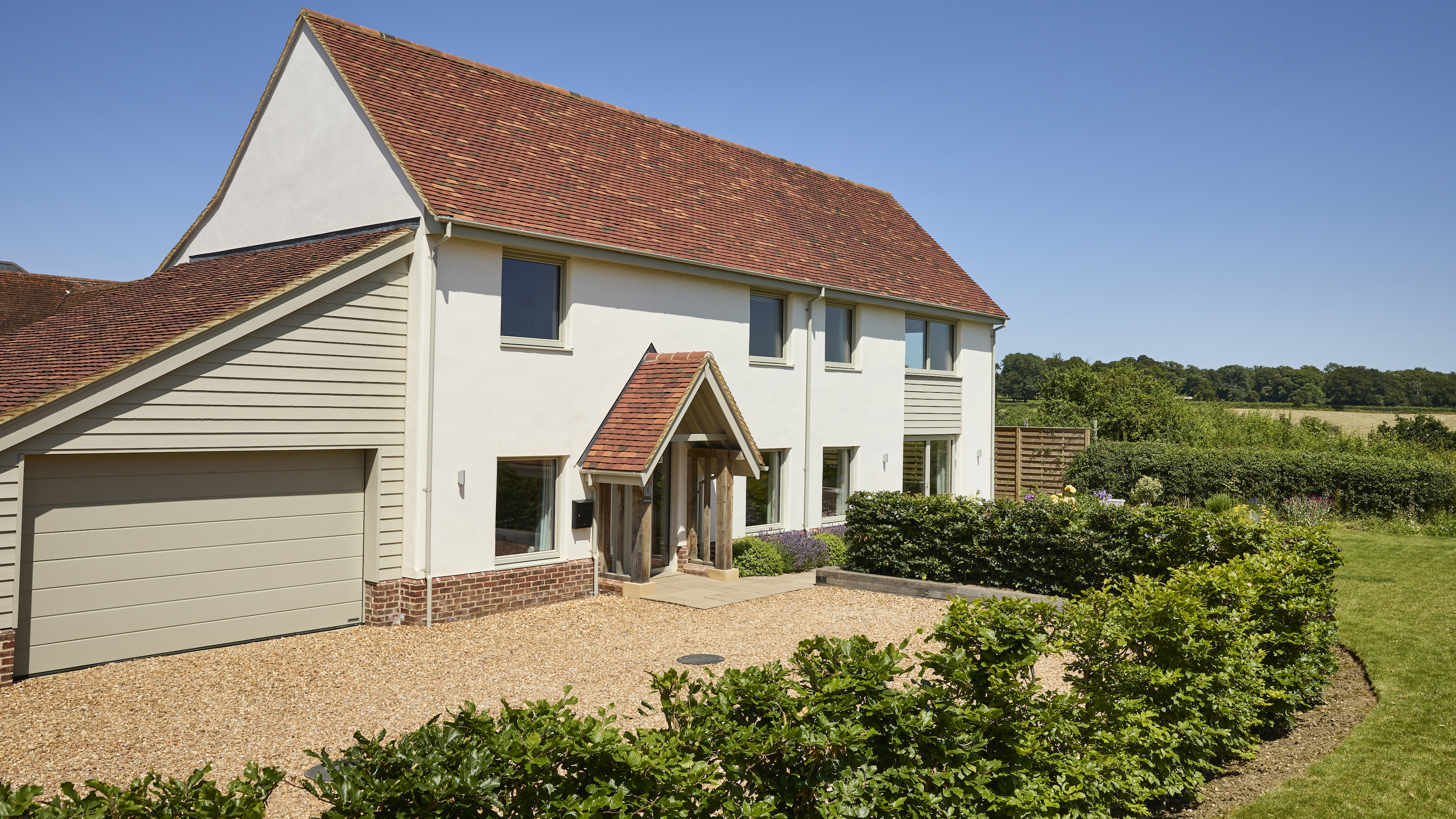
Sometimes you need to look ahead a little and consider the longterm cost implications of the products you invest in for your home. A resin driveway is a great example of this as although they initially cost more, they can be expected to last for many years.
Resin driveway costs come in at around £80-£120/m2 if you are opting for a resin bound (as opposed to bonded) option – which is obviously significantly more than something like gravel or tarmac. However, keeping the design of your driveway simple will help lower costs. It is also important to note that this type of driveway can last up to 25 years.
FAQs
Can driveway design affect costs?
In addition to the materials you choose, your driveway design will also play a major role in what you eventually end up paying.
"Often it can be tempting to choose a driveway with interesting designs and patterns as they can be far more aesthetically pleasing and add a touch of luxury to the outside of your property," says Tom Clifford. "However, costs can easily add up when you start incorporating unnecessary extras. It’s far more affordable to opt for a simplistic design, it will also ensure longevity as simplistic styles are far more timely."
How can I avoid driveway repairs?
Good maintenance is key to prolonging the life of your driveway and means you won't need to spend any more on it any time soon.
“Regular driveway maintenance will extend the lifespan of your driveway considerably," confirms Tom Clifford. "This includes cleaning your driveway every few months using a pressure washer to remove dirt. That said, if your driveway is made from a delicate material then try handwashing instead.
"In addition, consistent weed removal is key to preventing damage in the long-run. If hairline cracks appear in your driveway surface then these must be filled as soon as possible to prevent them from developing into larger cracks and resulting in driveway replacement."
Do you have to install paving channels?
“During wet seasons rainfall may collect on your driveway resulting in water ingress and cause damage to the surface of your driveway," advises Tom Clifford. "Driveway repairs can be expensive so to avoid this it is a good idea to install paving channels around the outskirts of your driveway. Investing in these drainage channels will redirect surface water away from your driveway to ensure it remains dry, reducing the risk of damage and saving money in the long run.”
Your driveway is only part of the front exterior of your home and should be designed alongside your front garden ideas.
You'll need to think about how to soften areas of hardstanding, consider how you will create pathways leading to the front door, possibly choose fences and gates and provide places to store anything you plan on keeping on your driveway.
You should also give plenty of consideration to your driveway lighting ideas as these can really help take the kerb appeal of your home to the next level as the sun goes down.
Get the Homebuilding & Renovating Newsletter
Bring your dream home to life with expert advice, how to guides and design inspiration. Sign up for our newsletter and get two free tickets to a Homebuilding & Renovating Show near you.
Natasha was Homebuilding & Renovating’s Associate Content Editor and was a member of the Homebuilding team for over two decades. In her role on Homebuilding & Renovating she imparted her knowledge on a wide range of renovation topics, from window condensation to renovating bathrooms, to removing walls and adding an extension. She continues to write for Homebuilding on these topics, and more. An experienced journalist and renovation expert, she also writes for a number of other homes titles, including Homes & Gardens and Ideal Homes. Over the years Natasha has renovated and carried out a side extension to a Victorian terrace. She is currently living in the rural Edwardian cottage she renovated and extended on a largely DIY basis, living on site for the duration of the project.
